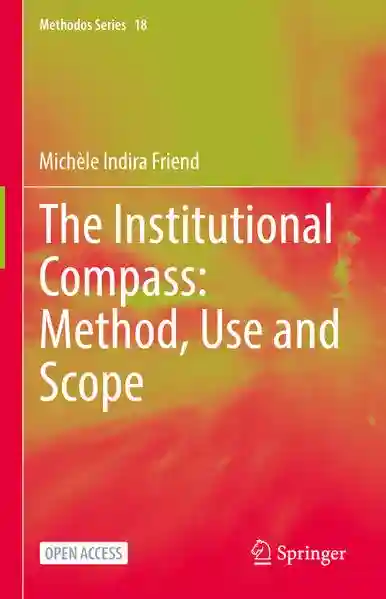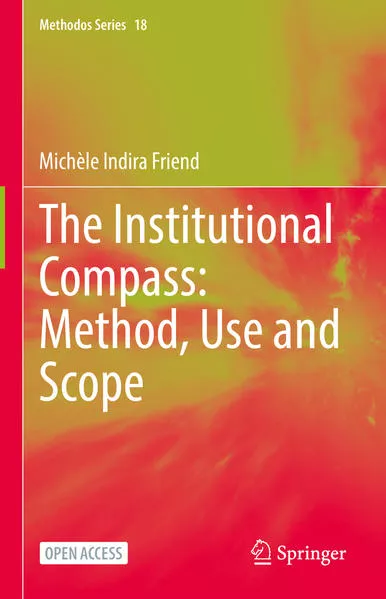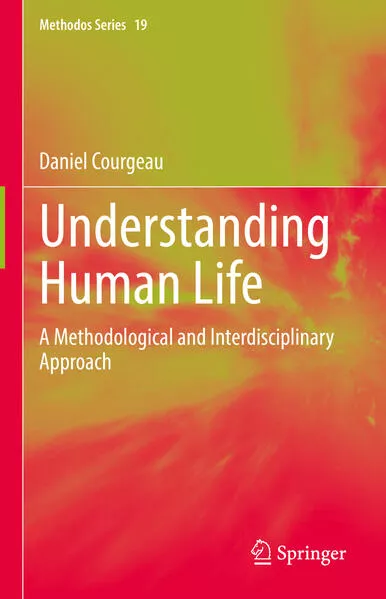Chronologie aller Bände (1 - 2)

Die Reihenfolge beginnt mit dem Buch "The Institutional Compass: Method, Use and Scope". Wer alle Bücher der Reihe nach lesen möchte, sollte mit diesem Band von Michèle Indira Friend beginnen. Die Reihe umfasst derzeit 2 Bände. Der neueste Band trägt den Titel "Understanding Human Life".
- Anzahl der Bewertungen für die gesamte Reihe: 0
- Ø Bewertung der Reihe: 0
- Start der Reihe: 09.07.2022
- Neueste Folge: 18.11.2023
Diese Reihenfolge enthält 2 unterschiedliche Autoren.
- Band: 18
- Autor: Friend, Michèle Indira
- Anzahl Bewertungen: 0
- Ø Bewertung:
- Medium: Buch
- Veröffentlicht: 09.07.2022
- Genre: Politik
The Institutional Compass: Method, Use and Scope
The compass marks a new generation in four respects. 1. The representation of the data is intuitive and simple to understand, and therefore can be used to communicate and justify policy decisions. 2. Any data can be included, i.e., none is excluded. This makes the compass tailored to particular situations, voices and contexts. 3. The data includes different time horizons and different types of value: monetary, use, social, sentimental, religious, intrinsic, existential... 4. The process of compass construction can be made inclusive at several junctions. An institutional compass can be extended to evaluate products, add normativity to a systems analysis, reflect world-views such as that of ecological economists or function as an accounting system to manage scarce resources.
There are four parts to the book. The first part introduces the general ideas behind the compass. In the second part, the author presents the method for constructing the compass. This includes data collection, data analysis and a mathematical formula to aggregate the data into a single holistic reading. In the third part, the author extends the methodology: to incorporate it into systems science, adding a normative and quality-direction dimension, to use it as a non-linear accounting method and more thoroughly to reflect the philosophy of ecological economists to give a real measure of sustainability. In the fourth part, we see three case studies: one for the World Health Organisation, a second is the use of the compass to label products in a shop and the third is as a regional compass for Hauts-de-France. The book ends with philosophical conclusions.
Throughout the book, we see tight arguments, refreshing ideas and a thorough treatment of objectivity in decision making.
- Band: 19
- Autor: Courgeau, Daniel
- Anzahl Bewertungen: 0
- Ø Bewertung:
- Medium: Buch
- Veröffentlicht: 17.11.2022
- Genre: Roman
Understanding Human Life
This book addresses the challenge of understanding human life. It compares our life experience with the attempts to grasp it by astrologers, eugenicists, psychologists, neuroscientists, social scientists, and philosophers. The main opposition among these specialties lies between understanding and misunderstanding. The book also addresses the central methodological difficulty of capturing a human life.
It is first examined how certain approaches may lead to a misunderstanding of human life. The book contrasts the example of astrology—an accepted practice in ancient civilizations, but now classified among the pseudosciences—with astronomy, a full-fledged science since Galileo’s time. Another, more recent approach regards human life as predetermined by genes: the methods used by eugenicists, and later by political regimes under the name of hereditarianism, came to compete with genetics. A broader analysis shows how astrology and eugenicism are not truly scientific approaches.Next, the book looks at the ways of capturing an imaginary or real human life story. A comprehensive approach will try to fully understand their complexity, while a more explanatory approach considers only certain specific phenomena of human life. For example, demography studies only births, deaths, and migration. Another crucial factor in the collection of life histories is memory and its transmission. Psychology and psychoanalysis have developed different schools to try to explain them.
The book concludes with a detailed discussion of the concepts and tools that have been proposed in more recent times for understanding the various aspects of life stories: mechanisms, systems, hermeneutics, and autonomy.

